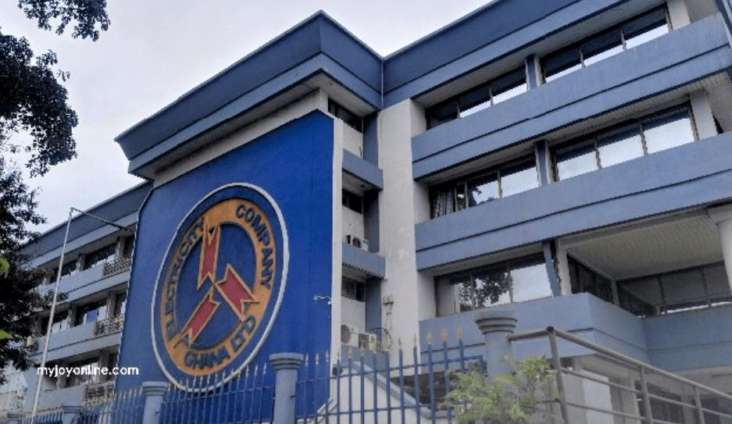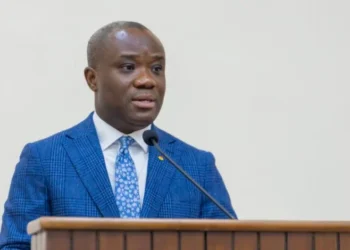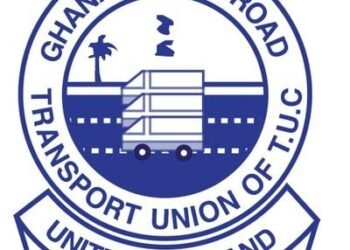The controversy over the proposed ECG tariff increase has deepened as Hon. Emmanuel Bedzrah, Chairman of Parliament’s Energy Committee and MP for Ho West, has strongly opposed the Electricity Company of Ghana’s (ECG) request for a massive 225% hike in its Distribution Service Charge.
Speaking passionately on the matter, Bedzrah declared that he would not approve the proposal, citing its devastating impact on consumers and the urgent need for government intervention.
The ECG recently submitted a request to the Public Utilities Regulatory Commission (PURC), arguing that the sharp increase is necessary to prevent financial collapse and maintain a reliable electricity supply.
However, Bedzrah believes the move is ill-conceived and threatens to overburden already struggling Ghanaians.
“Sitting here as the chairman of the Energy Committee and listening to PURC, ECG, and all the institutions that are under PURC, I will not approve anything that ECG will bring to us. Zero.”
Hon. Emmanuel Bedzrah
Bedzrah noted that members of the Energy Committee, representing both the ruling National Democratic Congress (NDC) and the opposition New Patriotic Party (NPP), expressed strong dissatisfaction with ECG’s proposal.
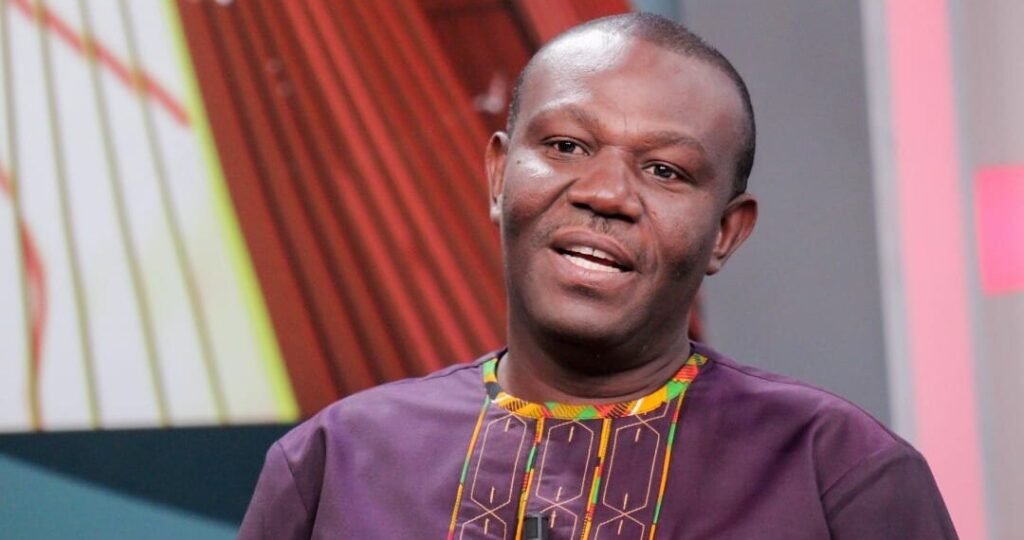
He explained that discussions within the committee reflected a rare display of bipartisan unity, with members from both sides criticizing the request.
Bedzrah added that he intends to reach out directly to the PURC Executive Secretary to address the matter. “They shouldn’t bring it to us.”
Consumers Unable to Bear ECG Tariff Burden
The Energy Committee Chairman raised serious concerns about whether ordinary Ghanaians can afford to cope with such a steep tariff increase, particularly given the nation’s current economic challenges.
Accordingly, Hon. Bedzrah cautioned that a 225% hike in ECG tariffs would place a heavy financial burden on both households and businesses, worsening the economic hardships many citizens are already facing.
He recalled a previous instance when the ECG raised tariffs by 17%, which he said was implemented without adequate consultation with Parliament.
“We told them, well, you should have consulted us. You didn’t consult us,” he lamented, warning that failure to engage stakeholders only deepens public resentment.
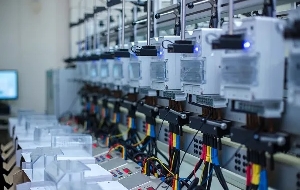
He further explained that the ongoing debate should not only focus on whether tariffs should rise but also on the broader question of how electricity services are classified in Ghana’s economy.
According to him, there must be a clear decision on whether electricity is to be treated as a social good or a private good.
If it is deemed a private good, he said, then the ECG would have the freedom to set prices independently.
However, if it is considered a social good, the government, he noted, must step in to subsidize costs and shield consumers from exorbitant charges.
Government Role in Cost Recovery
Hon. Emmanuel Bedzrah voiced deep concern over ECG’s plan to pursue full cost recovery by transferring the company’s debts directly to consumers. He warned that this approach essentially privatizes electricity services without explicitly declaring it.
Bedzrah suggested that electricity should be treated as a social good, with the government stepping in to absorb part of the costs.
This, he argued, would protect citizens from excessive financial strain and ensure that access to electricity remains affordable and equitable.
The MP insisted that while the government may not be able to cover all costs entirely, it must take on a significant portion to protect vulnerable Ghanaians.

“Yes, the government should absorb some of the cost. And if the government is going to absorb some of the cost, then we should also look at the mismanagement of ECG as well.”
Hon. Emmanuel Bedzrah
In addition to his opposition to the proposed tariff hike, Bedzrah also raised concerns about the operational practices of ECG.
He argued that before passing additional financial burdens to consumers, there must be a thorough review of the company’s internal management to identify and resolve wasteful spending and poor planning.
He suggested that ECG’s persistent financial struggles are not only the result of low tariffs but also systemic issues within the company. Addressing these problems, he said, would ensure that government subsidies and consumer payments are used more effectively.
The MP’s comments come at a time when public frustration with Ghana’s electricity sector is at an all-time high. Frequent power outages, rising operational costs, and questions about financial transparency have fueled growing calls for reform.
Broader Implications for Energy Policy
Bedzrah’s stance has sparked a broader debate about how utility services should be structured and funded in Ghana.
While ECG argues that steep tariff increases are essential to maintaining service reliability, critics like Bedzrah maintain that such hikes risk excluding millions of Ghanaians from access to affordable electricity.
The government now faces a difficult balancing act: ensuring the financial sustainability of state-run utilities while protecting consumers from crushing costs.
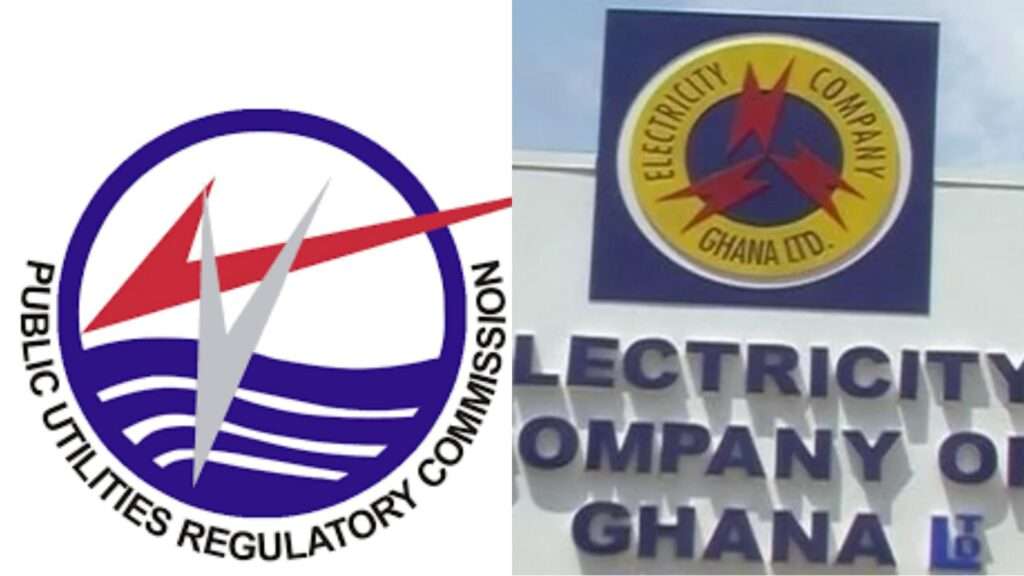
The Energy Committee’s rejection of ECG’s proposal signals that Parliament will play a pivotal role in shaping the outcome.
As discussions continue, stakeholders from across the political spectrum will need to consider both short-term solutions and long-term reforms to stabilize the sector.
For now, Bedzrah remains adamant that the 225% tariff hike is unacceptable and that the government must take responsibility for safeguarding electricity as a social good.
READ ALSO: Gulf States Express Solidarity with Qatar After Israeli Attack



